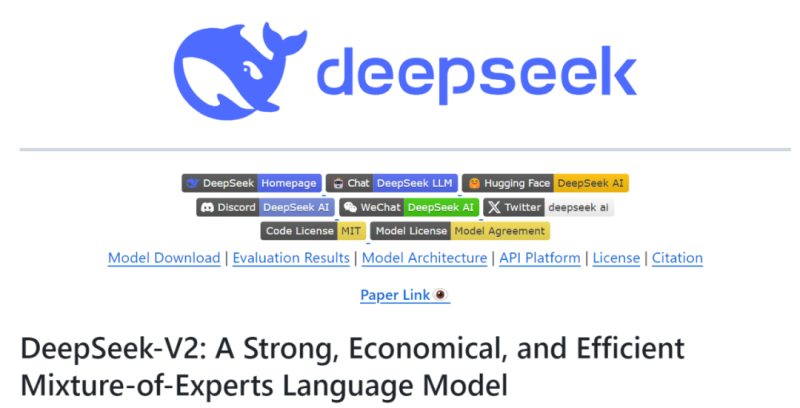Several companies, including Toyota and Mitsubishi, have banned employees from using DeepSeek
 JohnFeb 21, 2025, 03:22 PM
JohnFeb 21, 2025, 03:22 PM
[PCauto] In mid-February, several Japanese companies—including Toyota and Mitsubishi—announced that they would prohibit their employees from using DeepSeek internally, a decision driven primarily by concerns over information security.

Japanese firms, with Toyota and Mitsubishi at the forefront, contend that DeepSeek poses greater risks compared to AI products offered by American companies such as Microsoft. Some have even linked the platform to issues of "national security." Mitsubishi highlighted that DeepSeek fails to offer "adequate security protection" for corporate data, prompting them to ban network access to the tool across their organizations.
Against the backdrop of the United States tightening export controls on Chinese chips, DeepSeek’s emergence is seen as a milestone in Chinese technological breakthroughs. The low-cost, high-performance DeepSeek-R1 has even sent shockwaves throughout Silicon Valley. This competitive edge appears to have heightened international vigilance, leading Japanese companies to prioritize security over efficiency.

This move by Japanese firms is not an isolated incident but rather a microcosm of the broader global rivalry in AI technology. For instance, South Korea halted new downloads of DeepSeek from its app stores on February 15, citing unencrypted data transmissions and inadequate privacy policies, while urging users to refrain from sharing personal information. In the United States, a proposed bill seeks to ban DeepSeek from government devices, with violators facing penalties of up to 20 years in prison—further politicizing the technology debate.
Despite facing mounting international resistance, DeepSeek’s technical performance remains notable, particularly thanks to its affordability and open-source advantages. Its V3 and R1 models deliver performance comparable to OpenAI’s offerings at a very low cost, attracting developers and businesses worldwide. Impressively, DeepSeek-R1 amassed over 100 million users within just seven days of its release, establishing itself as one of the fastest-growing internet products in history.
However, the open-source nature of DeepSeek also introduces vulnerabilities. Publicly available model weights could be exploited for malicious purposes or lead to uncontrolled data flows to third parties.

The banning measures in Japan, South Korea, and other countries may further exacerbate global technology barriers in the AI industry, fostering a fragmented environment based on trust and hindering open-source collaboration and innovation. This situation exposes critical shortcomings in AI technologies related to data sovereignty and privacy protection, potentially prompting the international community to expedite the development of unified AI ethics and safety standards.
The decisions by Japanese companies reflect a rational demand to protect core data in the digital era while simultaneously spotlighting the tension between technological globalization and geopolitical dynamics. On one hand, the open-source nature of AI should theoretically enable collaboration; on the other hand, the conflict between national security and commercial interests renders it a true double-edged sword. Moreover, excessive caution could lead to technological isolation and impede global AI progress.
In the future, countries will need to strike a balance between data sovereignty and open innovation by building mutual trust through multilateral dialogue rather than resorting to unilateral restrictions. Only then can both "security" and "development" achieve a mutually beneficial outcome.
If any infringement occurs, please contact us for deletion
Trending News

BYD Sealion 7 is not only cheaper than Tesla Model Y, what other differences do they have?
Is it better to buy the BYD Sealion 7 or the Tesla Model Y? This really makes one a bit hesitant, but before you make a decision, I recommend you take a good look at this article.

2026 Toyota Hilux Travo released, the brand-new exterior and interior are highly anticipated
If you're considering buying a Hilux, honestly, the comprehensive innovations in the ninth generation are worth waiting for. While the current model might still have some advantages in terms of reliability and price, the new model offers significant changes in terms of exterior and interior luxury, tech features, and powertrain options.

Toyota Land Cruiser FJ did not disappoint, the most anticipated civilian off-road vehicle is back.
Since its birth in 1951 under the name Toyota BJ, the Land Cruiser series has accumulated sales of approximately 12.15 million units in over 190 countries and regions worldwide, becoming a global off-road icon spanning more than 70 years.

In Malaysia, which sliding door MPVs are available?
The numerous advantages of sliding door MPVs make many people fond of this type of vehicle. However, MPVs are not a mainstream choice in the car market, so many people might not know which MPVs are available domestically.

Jaecoo J7 VS Honda CR-V, which is the most worthwhile C-Segment SUV to buy
With an exterior that closely resembles a Land Rover, Jaecoo J7's sales experienced several months of rapid growth but have recently slowed down. Perhaps the market is nearing saturation, as Jaecoo J7 has already surpassed the once-dominant Honda CR-V in the C-Segment SUV category.
Popular Cars
Model Year
Car Compare
Car Photo

